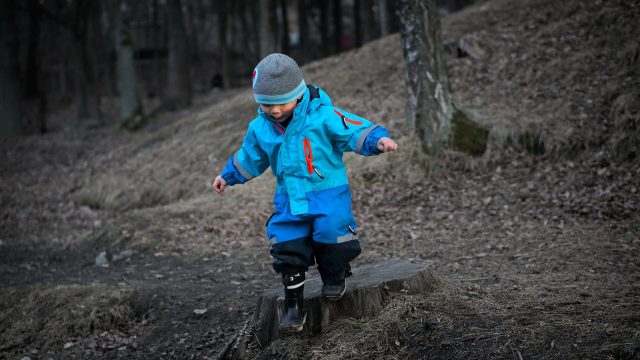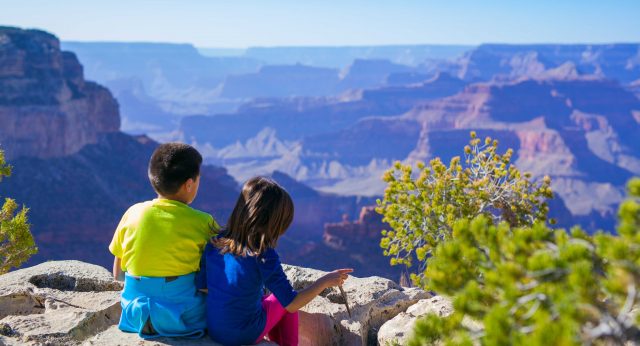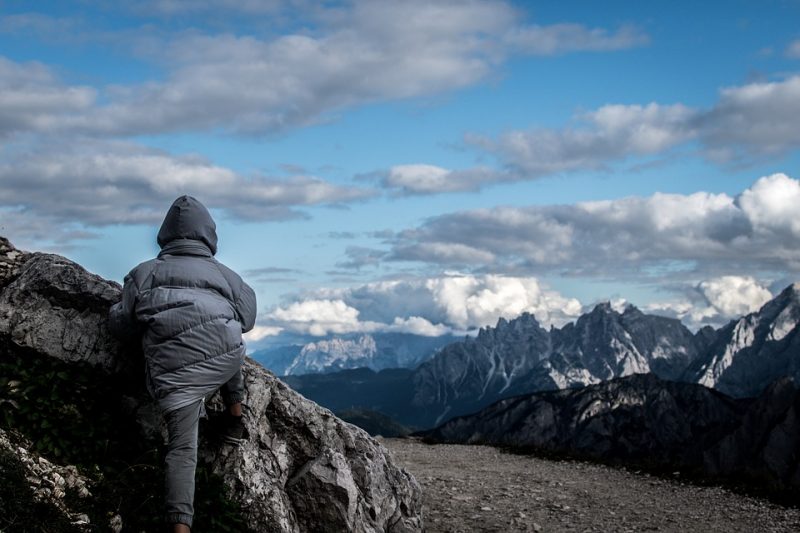How to teach kids to love being active outdoors
One of the scariest things for nature-loving parents is taking their kids outdoors for the first time. What if your kid hates hiking, is scared of animals, or doesn’t like being dirty? Well, rest assured that they’ll probably love being dirty. But teaching kids to love hiking and the great outdoors isn’t always easy.
New parents often wonder what kind of activities are appropriate for young kids outdoors. As well as how to acclimate their kids to things that are scary or challenging in nature. Hiking is a great example. Many parents worry that because their kids don’t like hiking when they’re young, they may never enjoy hiking as an adult. This is just not true, and we’ll go over it later. We’ll also cover some good ways to introduce young children to hiking without overwhelming them.
Most importantly, you need to remember that your kids are growing. That means they’re going to change a lot in the next decade or two. They may hate broccoli now and live off of it in college. Even if hiking might be their least favorite activity as a teenager, they may live in the mountains through their twenties. We’ll go over why that is, as well as how to instill a love for the outdoors from an early age without overdoing it.
Kids change a lot
The most important thing for a parent to remember, especially a first-time parent, is that your child is going to change a lot. Kids can change their mind about something overnight, let alone over the course of a year or a decade.

When I was a kid, I hated vegetables. All I wanted to eat was Kraft mac and cheese. When I was a kid, I certainly didn’t think of hiking or running as a fun way to spend my weekend. Nowadays, I start every morning with a run and basically live in the mountains.
Don’t get frustrated if your kid doesn’t share your interests or enjoy your pastimes. That’s ok. Remember to be patient and let them be themselves. A parent’s passions naturally rub off on kids whether they know it or not. As long as you don’t force things upon them and create negative memories and associations, the chances are that they’ll come around later.
Start slow
Even if your kids do love the outdoors and show an interest in hiking, it can be easy to overdo it. This can be detrimental to a positive experience in the outdoors. After all, kids often move at a different pace than adults. Although they may enjoy walking in the park and looking at nature, they might not like hiking to that clifftop viewpoint.

Their legs are small, so remember to take baby steps into their interests with them. If they enjoy animals, buy them animal books with lots of pictures. Maybe watch some animal movies. Take them to parks and places where they can see animals in real life without having to hike ten miles into the woods.
The best way to get your kids excited about the outdoors is to let them get excited about it on their own and then help them to pursue what it is they’re passionate about. There are very few kids in the world that won’t enjoy being outside when given a chance. Just make sure they don’t have too much TV time inside to stimulate their brains, and they’re almost certain to make their way outside on their own. Be patient with them, and support them little by little along the way.
Don’t push it
There’s a fine line between telling your kids they have a limit on TV time and trying to force them to love nature against their will. It’s a delicate balance that parents will disagree on until the end of time, or TV. Although it seems more likely that time will end before TV at this point.

However, so many parents think that they can force their interests upon their children. Although this may work in some ways in some cases, it’s not only hard on your kids, but can also be toxic to their relationship with that activity in the future. That’s how people wind up playing a sport all the way through college and then realizing one day that they hate it. The only reason they ever did it was to please their parents. I’ve met a number of people out in the mountains who have a similar story about ballet or tennis or football.
If your kid enjoys being outside, they won’t need you to push them out the door. What they’ll need from you is support in their passions and help to get them where they want to go. Be receptive to what you hear them say. Sometimes they can show interest in small ways or make requests without being confident of what they want. Be sure to take what they say seriously and provide them every opportunity to experience nature in new ways.
Set realistic goals
Remember when we talked about taking baby steps that your kids can manage with their baby legs? Well, that mentality needs to come into play when setting your own goals for your kids. They probably aren’t going to be Olympic athletes, and unless they are naturally driven kids, it’s probably not healthy to try to make them that way. By all means, help teach them to set high standards for themselves and self-motivate. But you don’t need to ask so much more of them than they do of themselves.

Some kids pick skills up quickly, others pick them up slowly. It can be of huge benefit for a parent to set goals in terms of their child’s experience rather than their achievement. When put into action, this sounds like this: ‘We are going to go to the Rockwall and have fun.’ vs. ‘You are going to climb to the top today.’ Or ‘We are going to hike for a while and see if we can find some frogs.’ vs. ‘We are going to hike all the way around the lake today.’
Once your kid has shown interest in something and has practiced a bit, then it’s more appropriate to set bigger goals and to push them to achieve more than they thought possible. After all, one of your most important roles as a parent is to teach your kids that they can achieve their dreams even if they don’t know how. It can help to teach them from an early age that nothing is impossible and they can learn to do anything. That way, you don’t need to push them beyond their limits constantly as they grow. They’ll be doing that on their own.
Pursue your kid’s passions not yours
The most important thing for motivated and well-meaning parents to remember is that your kid is not you. They will have their own personality, their own strengths and weaknesses, and their own interests and passions. It can be a big mistake to assume that because your kid grew up around your passions, they will share them with you. Some people are just different and fall in love with different things. That’s OK.

Trying to force your kids to be someone they’re not is a sure way to harm your relationship with them. It can also harm their relationship with the sport or activity you’re trying to encourage them to try. When a kid finds something, they’re passionate about, and their parents help them to pursue it, there’s almost no limit to what they can achieve.
Don’t be afraid to teach them about being passionate either. Questions like ‘how did it make you feel when you achieved that?’ or ‘do you feel like you’re improving?’ and ‘what did you change this time to do better than before?’ all help them learn to think critically about what they like and why they like it. Kids are born with emotions, but not with language to identify and reflect on those emotions. If you see your kid developing a passion for something, help them to examine how they feel by talking about it.
Outdoor revival
You’re probably already all about the outdoors. Whether its a sport, a space, or a lifestyle that gets you outdoors, it’s sure to benefit your mind, body, and spirit. You also obviously care about teaching your kids to develop similar passions and healthy life habits. Those two things are the two most important parts about getting your kids passionate about the outdoors.

If your kids grow up with good role models and plentiful opportunities to get outside, they’ll learn to love it in their own way. Don’t worry if they go through phases, or switch passions as they grow up. In the end, they’ll find their way outside on their own.
If you have any comments then please drop us a message on our Outdoor Revival Facebook page
If you have a good story to tell or blog, let us know about it on our FB page; we’re also happy for article or review submissions, we’d love to hear from you.
We live in a beautiful world, get out there and enjoy it. Outdoor Revival – Reconnecting us all with the Outdoors.





